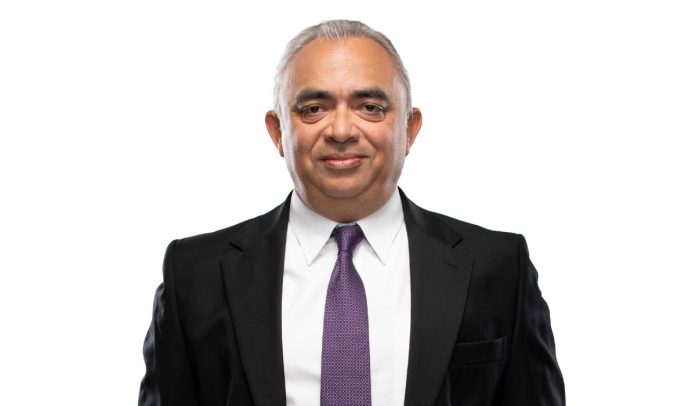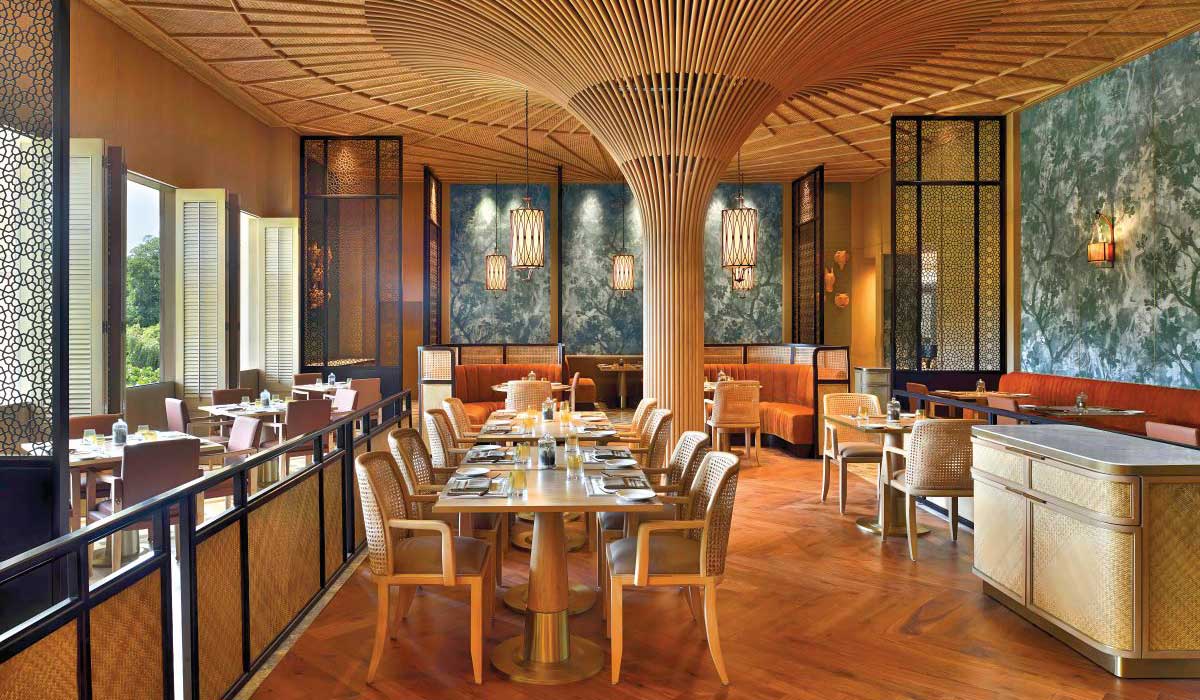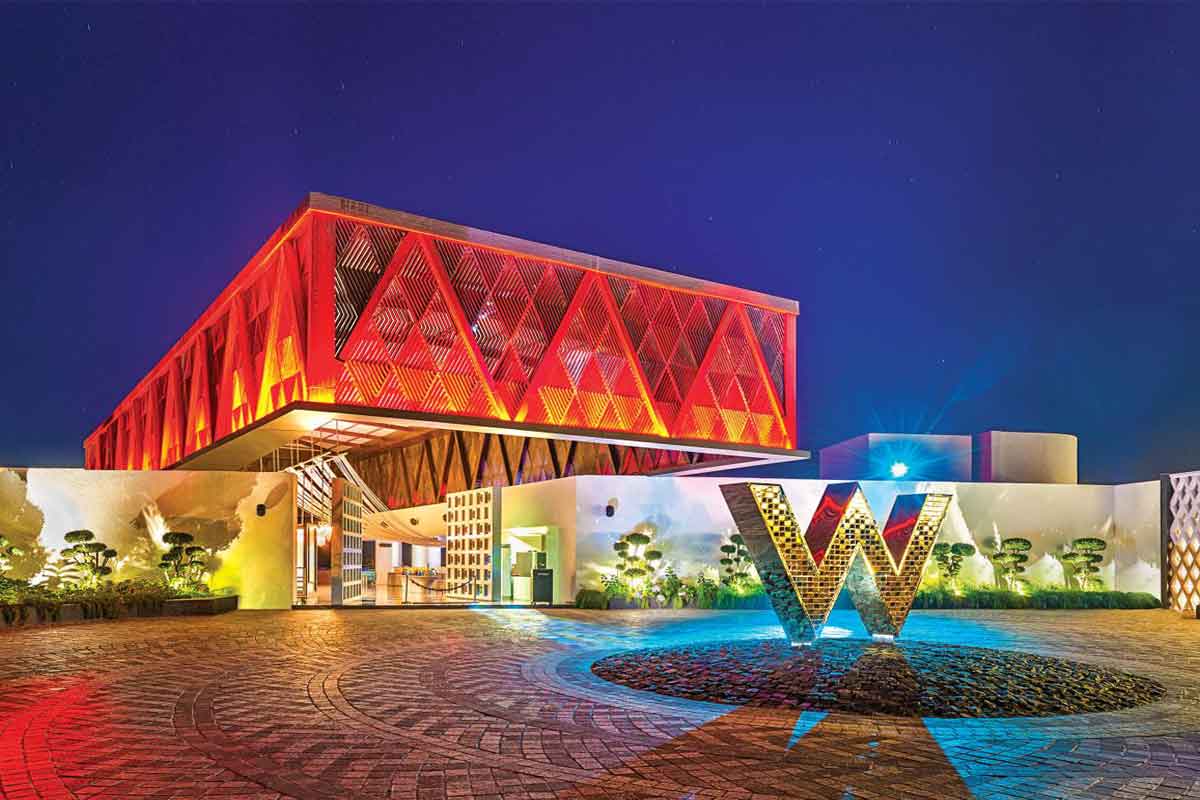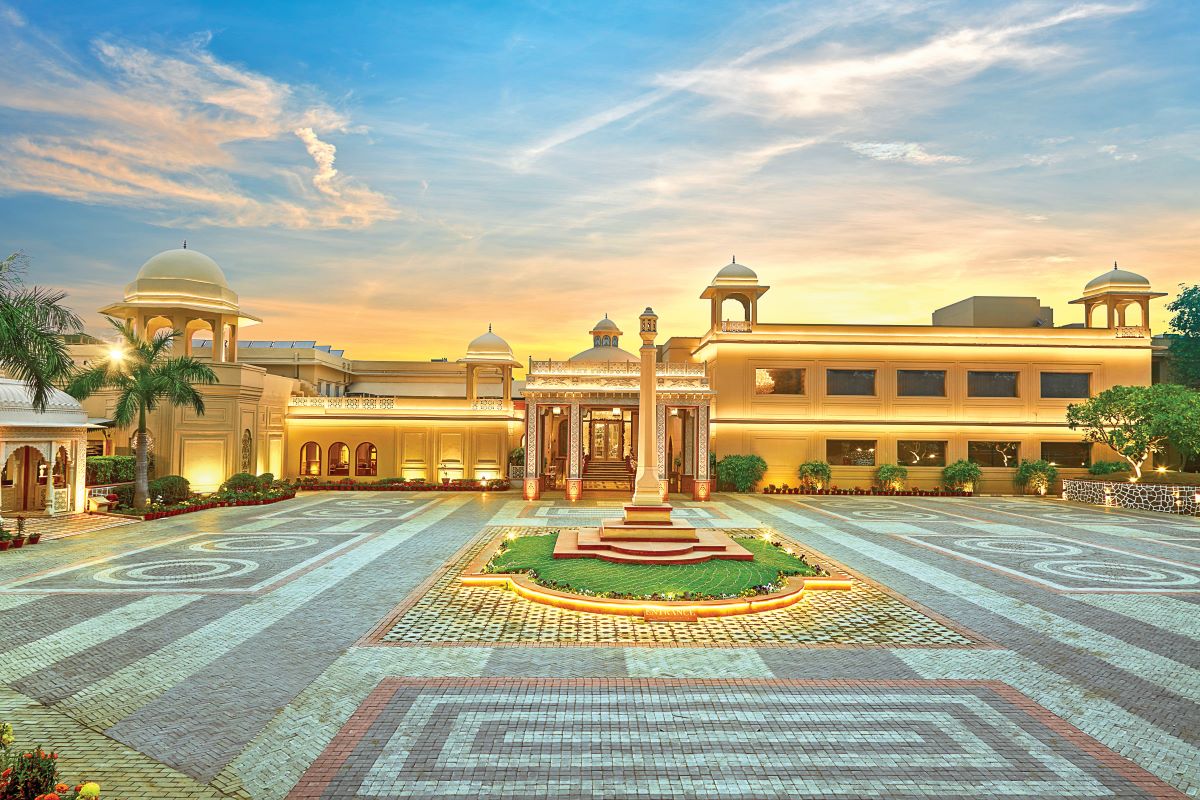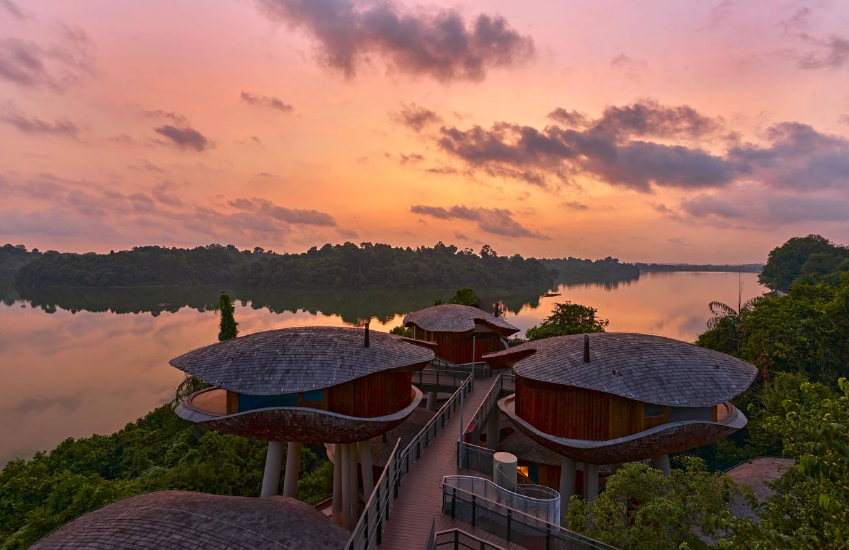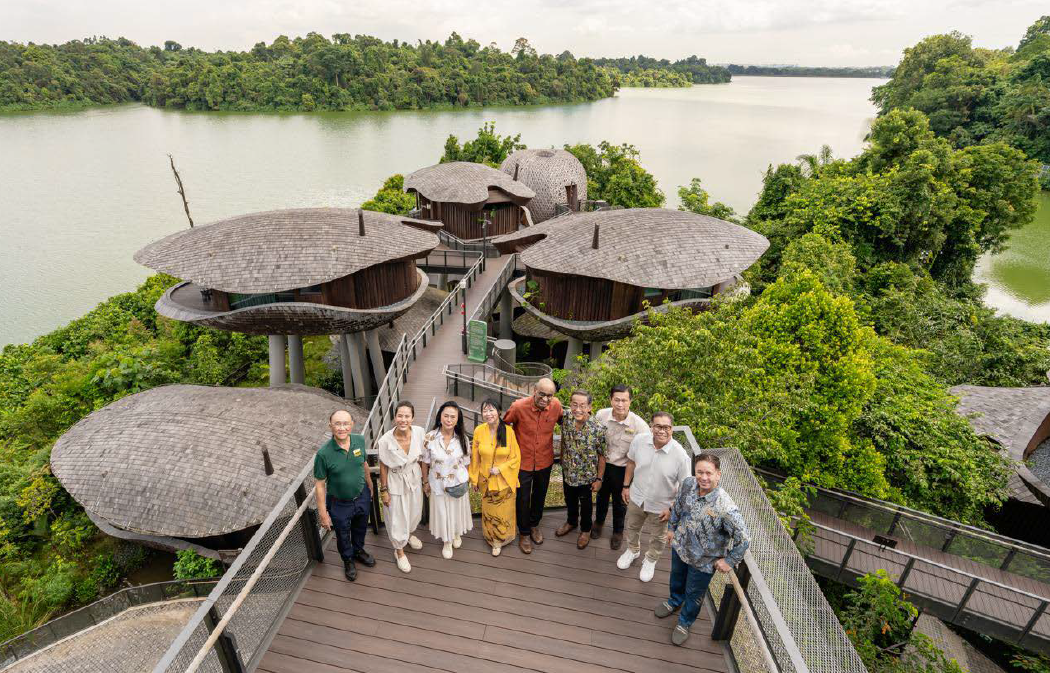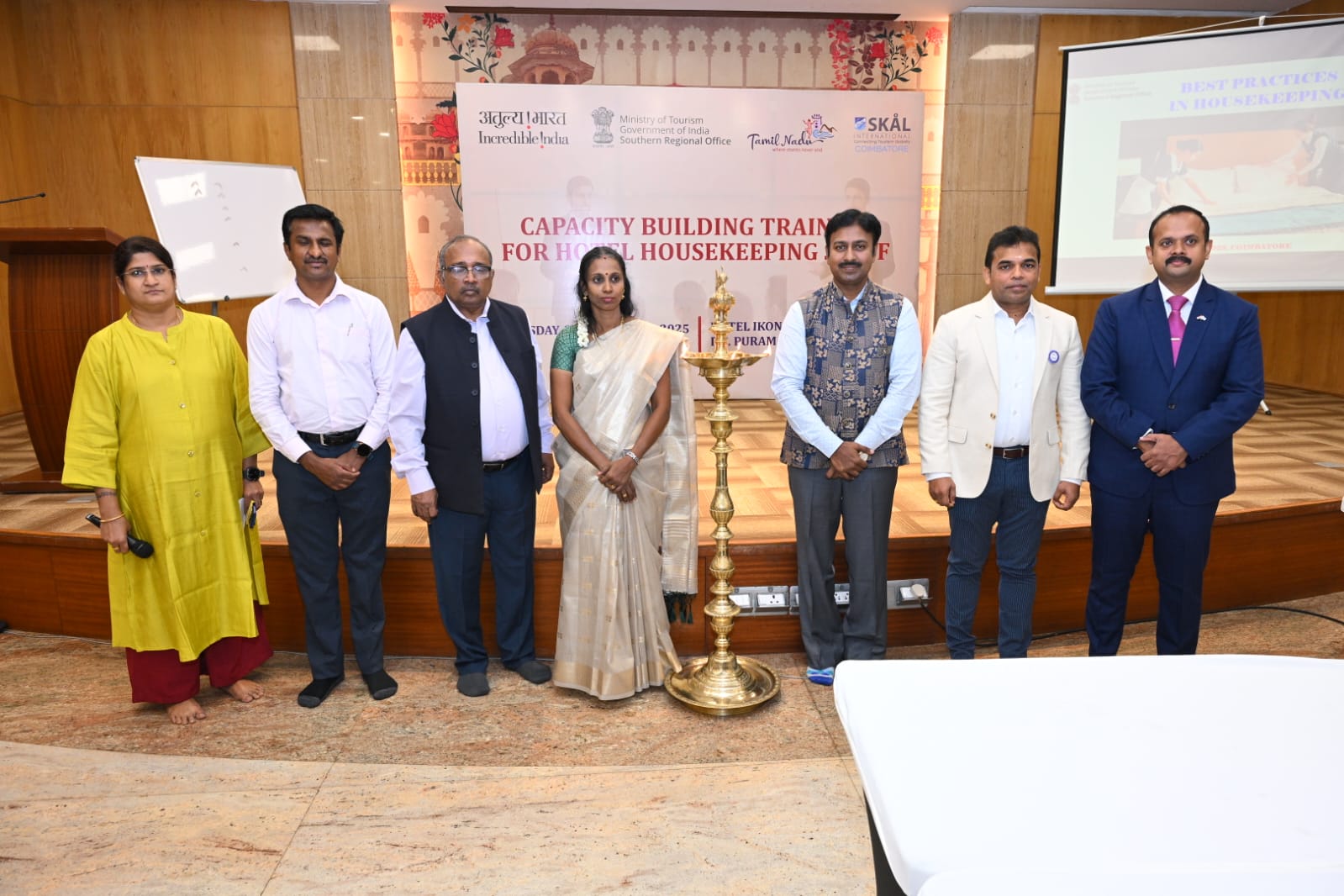InterGlobe Hotels has created a benchmark in the hospitality industry through their ethos of excellence. The group has been a game-changer in the mid-market segment and rely on sustainable practices for its hotels. J.B. Singh, President and CEO, InterGlobe Hotels, elucidate the USP of InterGlobe Hotels, their association with Accor and the future of the Indian hospitality market.
Anupriya Bishnoi
What sets InterGlobe apart?
One of the big differentiators that sets us apart is the pursuit of excellence. IHG has attained this through transparency, ethical leadership, compliances and with this synergy, the brand has managed to deliver outstanding products that have set a new benchmark in the industry. IGH champions in doing things the right way, even while creating new partnerships. When we wanted to venture in the hospitality segment, we were able to identify for ourselves that the mid-market space is where there is a big gap. InterGlobe has been consistent with every business it does. With 19 hotels across 13-14 cities, we have created an impact and are continuously innovating. That’s what makes IGH stand out.
Another unique thing about IGH is that it’s not resources hungry. The hospitality and tourism industry have a huge impact on the environment. A product like ours can be built on a small area. We have numerous sustainability projects within a hotel. All our hotels have adopted solar wind energy. For the new hotels, there will be gold certification, which means when they get constructed, the topsoil will have an ensured protection. We want hotels to initiate the sustainable practices culture not only for the property, but for the customers as well.
Elucidate the Accor collaboration.
The collaboration is a long-term relationship and a large investment. The business is well-managed through transparency on both sides. This includes contribution from InterGlobe’s side for understanding the space and putting a suited development team and Accor’s expertise in operating the hotels. We are deeply embedded and find a lot of value that comes out of it. We have created an efficient synergy.
Kindly elaborate on the associations besides ibis.
According to the opportunity the market offers, we shall collaborate. Besides ibis, we are also looking at Novotel. We have one hotel that is under construction now in Bengaluru and are not averse to the idea of doing more properties.
How are you filling in times of undersupply of rooms in India?
There is a big undersupply in the Indian space, we have some 140,000 rooms, while Las Vegas has 150,000 rooms and Dubai has 100,000 rooms, therefore, we are grossly underpenetrated. The Indian market is developing, and all developing markets evolve in pockets and the sub-continent, too, is paving way for the standard big metros of Mumbai, Delhi and the suburbs, Bengaluru and so on. These are high-growth markets, that has good absorption rate not just from the hospitality side, but from the aviation and commercial real-estate segments as well. Emerging markets like Pune is on the growth trajectory. The new markets will sprout and offer enormous opportunities to the existing markets. Even though the projections of these markets seem saturated, I feel, these markets will take three times more inventory than it has today in the next 15 years. This demand will come through sheer urbanisation, increase in air capacity, better airport infrastructure, conferencing facilities, evolving events sector – every time there is an event in the city, it starts to crumble between, rail, road, air, hotel. But we will remain committed to this space and we believe, it needs huge amount of inventory. Given the demographics that exist in the country, there is a massive gap.
What’s your forecast for the Indian market?
The market has started to revive in a robust manner. We believe that will continue to grow for the several years to come. Of course, minor blips are there like the recent reduction of air capacity, which I think shall be sorted soon. Overall the demand is good, economy is growing, there is under capacity as far as hotel inventory is concerned, but we foresee growth and are committed to capture it optimally.
Enumerate expansion plans.
Since 2004, we have up to 19 hotels and have a committed pipeline of 5-6 hotels. In another 3 years, we will cross 4000 rooms and continue to focus on the Tier-1 markets aggressively. We have also started to explore strong Tier-2 markets as well. We want to grow efficiently, yet with caution.
People relate ‘ibis’ just with the metro cities. Do you think you have penetrated only in the metros and not in the smaller towns?
I think we have gone beyond the preference for metros. ibis in Nashik was one of the first 4-5 hotels opened in terms of expanding into smaller towns. Jaipur too has a beautiful property, we got a 200-room hotel in Goa, which has done exceedingly well and aim to build a second one in the state. We have unveiled another in downtown Kochi, and one in Coimbatore, that is now becoming a health and wellness retreat. We have identified special pockets/districts that have uniqueness to attract potential travellers.
Yes, we cater to the demand of the customers to build hotels in metros like Mumbai, Delhi, Bengaluru and Gurgaon. We have a couple of hotels under construction in Vikhroli and Thane. Also, we have 50-60 per cent repeat customers.
Talking about preference for the travellers, does it remain for the metros?
Firstly, we ensure that the business is sustainable for all our all our stakeholders even our vendors and customers. For example, Goa, gives good revenue throughout the year and sustains through lean and shoulder months. We are positive of this market and hence developed a second hotel and shall initiate a third property as well. We will focus on more leisure circuit if suited infrastructure gets developed, that can create mobility.
How is ibis fairing in terms of ARR and Occupancy?
Ibis as a brand is unique, and if you were to compare it to the industry, it will always trade better than the rest- at least 10 per cent higher. The brand engagement of ibis is strong, and the service levels are high. Even the backend of our hotels is as good as the front. Unlike the usual hotels, our hotels exhibit a casual environment like that of a café. We have a young team that strives hard to excel. The locations of our hotels are strategic, the rooms are cleverly designed, and technologically sound. Our acoustics in the room are creating a benchmark in the industry. The currently built IBIS Kolkata has the best acoustics in the country. We deliver value to our customer by crunching the space. By reducing the real estate, we derive the value.
According to you, mid-market is on the rise and brands like ibis seems to have a bright future, how do you foresee the luxury market?
The key always is how consistently can you continue to deliver the product and how you can marry off your service delivery with the expectations that you build in customers. There is enough business for everyone. We find the whole market of the mid-market space thriving individual, while our manning count is efficient in the industry. We have multi-skilled resource for our brands.
What happens to hotels in lean season?
Our products survive and perform better even during the lull trend in the industry. For us, price integrity is essential and customers love us for that. We maintain price parity throughout the year. We aim for a best deal. The luxury brands witness a deeper season than us. We combat this time through new ideas. We are initiating a new project in BKC, Bandra Kurla, that will be between a 150-200 rooms. We are focusing at cities like Mumbai, Bengaluru, Pune, third one in Goa. Ibis is undergoing a transformation of a new design, like the property in Kolkata.
Are you spending more on design than before?
We have got our cost down through spending more on design. We lowered our bill cost over the last five years by almost 30 per cent.
Who are your clients?
Our clients are a massive mix. There are lot of corporate travel due to a huge number of corporate contracts that varies from city to city. The product has gained acceptability by large genre of travellers.
Any location where you are not at currently but would love to be in?
We have been chasing projects in Hyderabad. Focusing on Chandigarh, we feel the product can hold on the market for a longer period. Ahmedabad can absorb, but sustenance there is dicey.
Quotes:
- There is a big undersupply in the Indian space, we have some 140,000 rooms, while Las Vegas has 150,000 rooms and Dubai has 100,000 rooms, therefore, we are grossly underpenetrated.
- Our products survive and perform better even during the lull trend in the industry. We maintain price parity throughout the year.
ibis on Scalability
Since India’s economy opened itself to the rest of the world in the early 1990’s the middle class was exposed, possibly for the first time to job opportunities beyond the ones offered by the government. This meant a sudden surge in travel and consequently a need for quality affordable accommodation. The gap between demand and supply was so massive that the rates and occupancies in most Tier I markets hit stratospheric levels. We recognized this gap in the industry and formed a strategic joint venture with Accor Hotels – one of the largest hotel operators in the world, with heaps of experience of having operated hotels in the mid-market space. Together, the JV introduced the Ibis brand to India and today collectively owns and operates 17 Ibis’ across the country.
InterGlobe Hotels today is now one of the most significant investments in the economy/mid-market space in hospitality in the country. From the time the first hotel opened in Gurgaon in late 2008, the company has been growing at a scorching pace both in terms of inventory as well as revenue. When the latest opening at Kolkata was added to the portfolio, the overall room count is up to 3,050 rooms. This has meant that in the last 5 years, more than 1,900 rooms have been made operational at a growth CAGR of 31%. During the same time in which the pan India hospitality performance was only slowly growing (Occupancy rose by 6% points over the period and rate remained steady) IGH outpaced the market with a revenue CAGR of 26%.
With another 6 hotels under development the rooms inventory will rise to 4,000 rooms by 2022 and there will be an ibis in 14 cities across the country. This would mean IGH will have an ability to be serving 1.5 million guests every year.
The growth story will also continue through further acquisitions both through the greenfield and brownfield routes keeping IGH in the pole position when it comes to investments in the hospitality space in India.
ibis on Sustainability through Innovation
Continuous innovation is a way of life at IGH which is constantly setting new standards through its Future-Minded approach. When we introduced the Ibis brand back in 2008, it challenged the status quo and other players turned around and took notice. Our effective use of space, cookie-cutter design of rooms, pod bathrooms and well-designed public areas were game changers for the industry. To remain efficient and gain scale, cost and time-to-build were critical. Our continuous innovative efforts shrank our costs by almost 30 per cent, despite inflation and set new standards for the industry in time-to-build. We have also remained ahead of the curve to adapt to our customers changing aspirations which has led to a complete overhaul of the Ibis product. Each aspect of the room has been thoroughly researched to provide a great night’s sleep. The acoustics are of highest standards with double glazed windows which do not allow noise from the outside to trickle in and thickly carpeted corridors which ensure that none of the internal noises are disturbing. The signature Sweet Bed has been introduced (an innovative bedding concept with big, fluffy pillows, super-soft duvet, high-tech mattress that adapts to your body and luxurious mattress topper) which further enhances the sleep experience. The artwork in the rooms now has heavy local influences and celebrates the uniqueness of the city and its culture.
The public areas have been designed in a contemporary manner which allows the guests to be served without it being overbearing. Due importance is given to health and wellness through a well-equipped gym which is almost always attached to an open space which allows the guests to indulge in yoga/meditation etc. in peaceful environs. Food and Beverage offering caters to the huge diversity of the country through all Indian breakfast buffets and dinners which allows for local cuisines and flavours to be explored.
Sustainability is another shining example of how continuous innovation is happening at IGH. Green building is the practice of creating structures and using processes that are environmentally responsible and resource-efficient throughout a building’s lifecycle from planning to design, construction, operation, maintenance and renovation. For IGH the journey starts from the planning stage itself as all projects aim for Indian Green Building Council Gold Certification. Once the hotel becomes operational, Planet 21 mantra of Accor is followed to ensure that all 7 pillars of health, nature, carbon, innovation, local development, employment and dialogue are adhered to.
Overall, ibis hotels offer fantastic value for money and with a quality and consistency that will never be a surprise!


